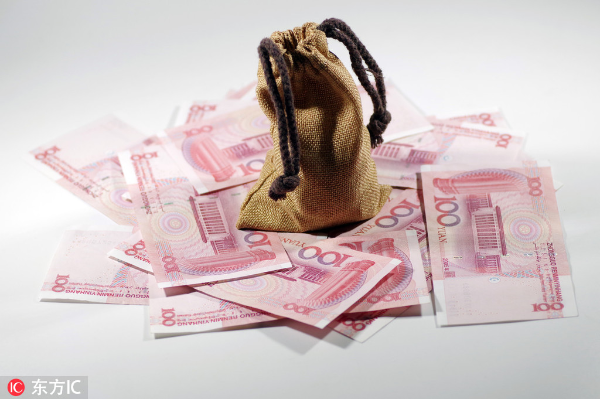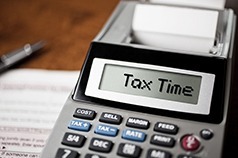The taxes applicable to foreign-invested enterprises, foreign enterprises and foreign individuals (including compatriots from Hong Kong, Macao and Taiwan) in Hainan province are: corporate income tax, individual income tax, turnover taxes (including value-added tax and consumption tax), land value-added tax, stamp duty, vehicle and vessel usage license plate tax, urban real estate tax, and others of a similar nature.

Corporate Income Tax
According to the Overall Plan for the Construction of the Hainan Free Trade Port, for encouraged industries, enterprises that are registered in the Hainan FTP and have a practical operational record are entitled to a reduced corporate tax rate of 15 percent.
The term "enterprises in encouraged industries" in this clause refers to enterprises whose main business are described and included in the catalogue of encouraged industry for the Hainan FTP, and whose major business income accounts for more than 60 percent of their total income.
The term "practical operation" means the management body of an enterprise set up in the Hainan FTP that actually performs management functions and carries out substantial and comprehensive management and control over production and operation, personnel, accounting and property affairs.
The catalogue of encouraged industries for Hainan FTP consists of the Guidance Catalogue for the Adjustment of Industrial Structure (2019 Edition), the Catalogue of Encouraged Foreign Investment Industries (2019 Edition) and the Catalogue of Newly Added Encouraged Industries in the Hainan Free Trade Port, basically covering all of the specific sectors in the three pillar industries of tourism, modern service and high technology.
For qualified enterprises with their headquarters based in the Hainan FTP, the 15 percent tax rate is applicable only to the income of their headquarters and branches in the Hainan FTP. For enterprises whose headquarters are outside of the Hainan FTP, the 15 percent tax rate is applicable only to the income of the qualified branches in the FTP.
Individual Income Tax
The Overall Plan for the Construction of the Hainan Free Trade Port provides that, for domestic and overseas high-end talents and highly-demanded talents working in the Hainan Free Trade Port before 2025, the portion of their personal income with an actual tax burden exceeding 15 percent will be exempted from tax.
Taxpayers should work in the Hainan Free Trade Port, and have signed a labor contract or employment agreement for more than one year with a company or unit which has been registered and put into substantial operation in the Hainan Free Trade Port. Moreover, taxpayers must have purchased social insurance for more than six consecutive months in the Hainan Free Trade Port in a tax year (including December of the current year). This article does not apply to foreign talents who cannot purchase social insurance.
The following types of income sourced from the Hainan Free Trade Port will be eligible: comprehensive income such as wages and salaries, remuneration for labor services, author's remuneration, and income from royalties; operation income; and talent subsidy income recognized by Hainan Province.
Taxpayers completing the formalities for annual final settlement of individual income tax in Hainan Province may enjoy the aforesaid preferential policies.
For taxpayers who are not high-end talents or highly-demanded talents, comprehensive income is subject to a seven-level progressive tax rate in excess of specific amounts ranging from 3 percent to 45 percent; business income is subject to a five-level progressive tax rate in excess of specific amounts ranging from 5 percent to 35 percent; income from interests, dividends, bonuses, the lease of property, the transfer of property, and contingent income is subject to a proportional tax rate of 20 percent.
After 2025, individuals who have aggregately stayed in the Hainan FTP for 183 days during a tax year may receive reduced progressive IIT rates of 3 percent, 10 percent and 15 percent for comprehensive income and operation income derived from the Hainan FTP.
Stamp Duty: All entities and individuals engaged in processes of purchase and sale, processing, contracting, property leasing, goods transportation, warehousing, loans, property insurance, technological contracts, as well as documents for transfer of property rights, business account books, and certificates of authorization within the territory of the People’s Republic of China shall pay Stamp Duty in accordance with regulations. The lowest tax rate of Stamp Duty is 0.05‰, and the highest is 1‰. Each certificate of authorization and business account book (excluding account books that record capital) must show a pasted stamp for 5 yuan.
Consumption Tax: By 2025, raw and auxiliary materials imported for production within Hainan, or for processing trade (or in the process of trade in services) from which final products would be made and exported to overseas markets, imported operational vehicles and yachts such as vessels and aircrafts for transportation and tourism on the island, and except for goods that are not exempt from taxes and whose import is prohibited by national regulations, the production equipment imported by enterprises for their own use shall be subject to "zero-tariff" positive list management and are exempt from import duties, import value-added tax and consumption tax.
In addition to three categories, all entities and individuals engaged in production, commissioned processing or import of consumer goods like tobacco, alcohol, cosmetics, skin-care and hair-care products, precious jewelry and jade, firecrackers, fireworks, gasoline, diesel, automobile tires, motorcycles, and motor cars, within the territory of the People's Republic of China are liable for Consumption Tax. There are 15 taxable items and 15 tax rates (tax amounts) of Consumption Tax, from 1 percent to 56 percent. The computation of tax payable for Consumption Tax shall either be determined by quota or by a fixed rate determined by the price of the consumable item.
Deed Tax: All entities and individuals as the acceptors of the transfer of land or housing ownership within the territory of the People's Republic of China are liable for Deed Tax. The transferring of land and housing ownership refers to: remising of national land-use rights, excluding transfer of management rights of rural collective land contracting; transferring of land-use rights, including selling, gifting and exchanging; house buying and selling; house gifting; and house exchanging.
Urban Real Estate Tax: Housing property owned by foreign-invested enterprises or foreigners is subject to Urban Real Estate Tax. The computation shall follow either the original value of house property after a one-off deduction of 10 percent to 30 percent, in which case the annual tax rate is 1.2 percent; or the rental of housing property, where the tax rate is 12 percent. Urban Real Estate Tax is calculated annually and paid by stages.




